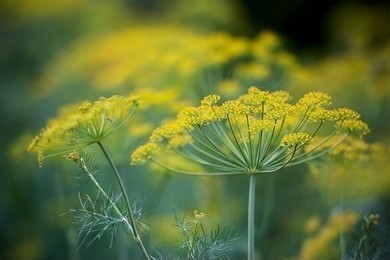Tissue Culture of Medicinal Apiaceae Plants
The Apiaceae family are annual or perennial herbs with hollow stems. Many species of plants in this family can be used as medicinal herbs, vegetables, spices, pesticides, etc. The whole family has about 275 genera and more than 2,850 species for medicinal purposes.

Modern medicinal chemistry and pharmacology research shows that Apiaceae plants contain volatile oils, coumarins, triterpenoid saponins, polysaccharides, alkaloids and polyenes, and other chemical components, which have important effects on central nervous system diseases, cardiovascular diseases, respiratory diseases, skin diseases, and enhancing the immunity of the body.
Apiaceae plants occupy a pivotal position in traditional Chinese medicine. The high demand has led to the continuous exploitation of wild plant resources in recent years and the gradual scarcity of species, which urgently needs artificial breeding methods to make up for the lack of natural species.
Tissue culture service
Some of the medicinal Apiaceae plants for which Lifeasible has successfully established fast-breeding systems
| Species |
Explants |
| Bupleurum chinese DC. |
Leaf-blades, stem segments, flower buds |
| Stellaria dichotoma var. lanceolata |
Leaf-blades |
| Changium smyrnioides |
Petiole, young stems |
| Saposhnikovia divaricata |
Leaf-blades, roots, petioles, young leaves |
| Heracleum candicans |
Leaf |
| Glehnia Zitteralis |
Rhizome |
| Lisgusticum chuanxiong Hort. |
Leaf-blade |
| Angelica sinensis |
Petiole, shoot |
| Centella asiatica |
Terminal buds, stem segments |
| Notopterygium incisum Ting ex H. T. Chang |
Young leaves, young buds, bud sheaths |
* The list of species that can be tissue cultured is constantly being updated, so please stay tuned.
Application of our established tissue culture system on Apiaceae medicinal plants
- Fast propagation and detoxification production
The plant materials utilized by Lifeasible in fast propagation are mainly stemmed tips, stem cuttings, leaves, embryos, etc. Some medicinal Apiaceae plants are also fast-tracked and virus-free seedling production through our established tissue culture system, which not only saves rare and endangered species but also can help solve the shortage problem caused by the lack of wild resources of medicinal plants.
- Preservation of germplasm resources
Lifeasible commonly uses in vitro preservation methods such as ultra-low temperature preservation, slow growth preservation, and drying preservation of healing tissue. Ultra-low temperature preservation can reduce or even completely inhibit the possibility of viability and genetic variation, and therefore can maintain the genetic stability of Apiaceae material, which is extremely important in addressing the conservation of mutations such as tissue and cell succession cultures and accumulated mutations in nature, and in rescuing species.
- Genetic improvement and breeding
The selection and breeding of superior medicinal plant species are essential for the development of medicinal plants. The tissue culture system established using Lifeasible can shorten the breeding cycle of medicinal Apiaceae plants and is an effective way to create new germplasm and breed new varieties.
- Production of secondary metabolites using tissue culture
Plant secondary metabolites are an important source of drugs. Applying the tissue culture system established by Lifeasible to obtain useful secondary metabolites is an effective way to exploit and protect the medicinal resources of Apiaceae plants.
You want to sign a confidentiality agreement.
You have a specific plant species for your experimental needs.
You have a reliable and relevant cooperation project to discuss.
You are very interested in our project or have any questions.
You need an updated and detailed quotation.
For research or industrial use.



